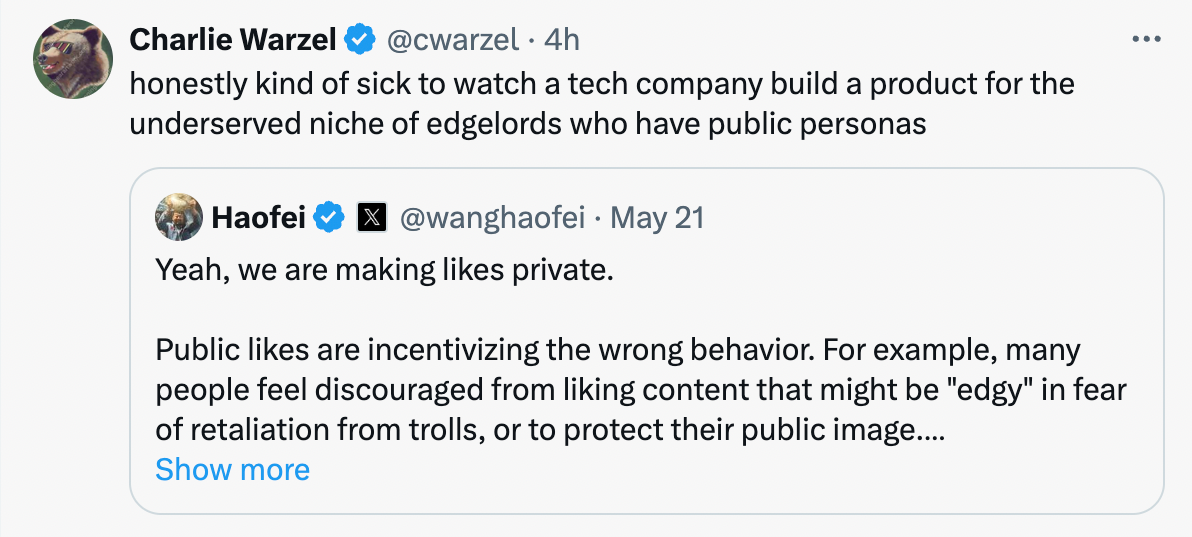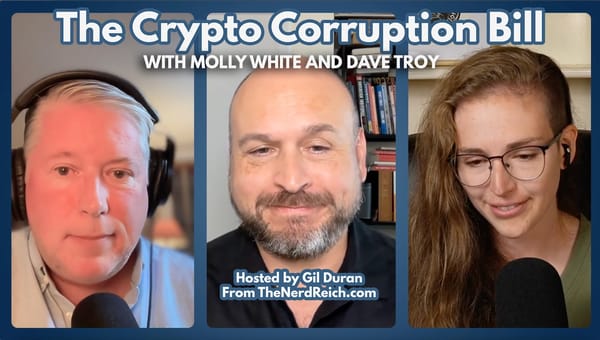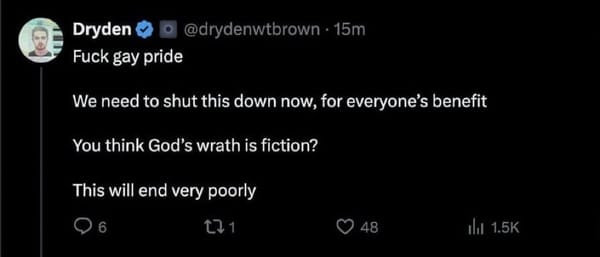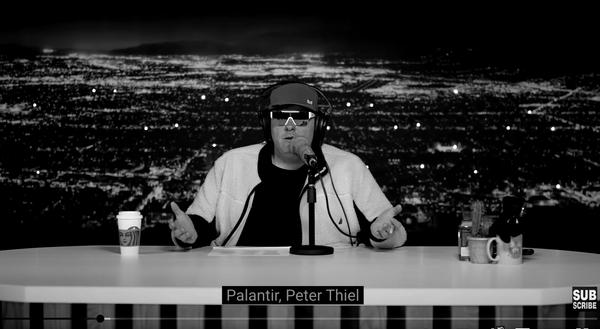Garry Tan and the violent edge in San Francisco Bay Area politics
Is this a case of 'Small Man Syndrome,' or something more sinister?
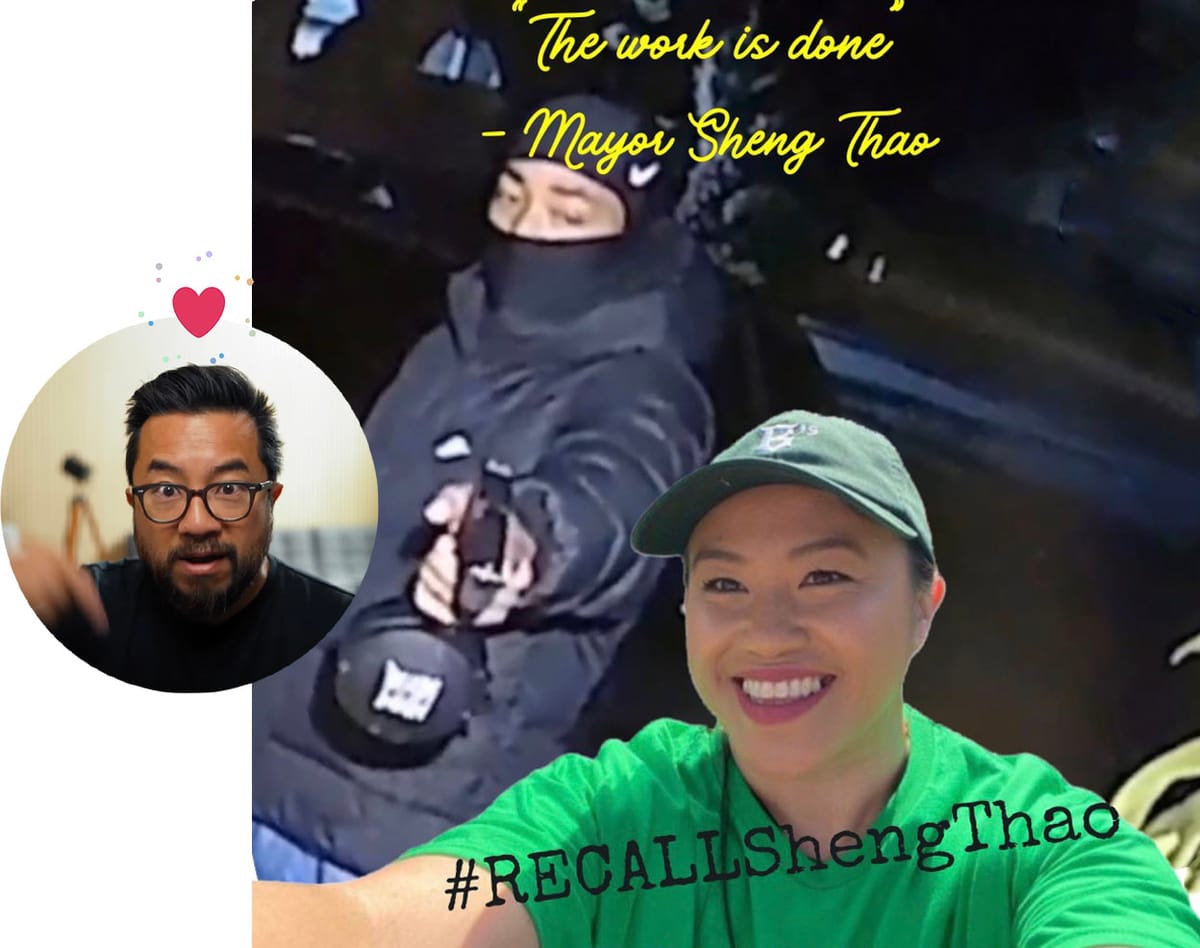
The Point: Garry Tan –Y Combinator CEO and wannabe San Francisco political boss – just can’t stop flirting with violence. It’s starting to seem like a strategy.
The Backstory: Last week, an anonymous Twitter account with less than 400 followers posted a disturbing photo. It showed a masked man pointing a gun at Oakland Mayor Sheng Thao and expressed support for the campaign to recall her from office.
The post garnered three reposts and 12 likes – not much, but not bad for a troll. More concerning, however, was who chose to express approval of the post. In addition to nine anonymous accounts, three Blue Check accounts clicked the heart-shaped "like" button.
Most prominent among them: Garry Tan, the tech venture capitalist with 439,000 followers who is currently trying to orchestrate a takeover of San Francisco politics.
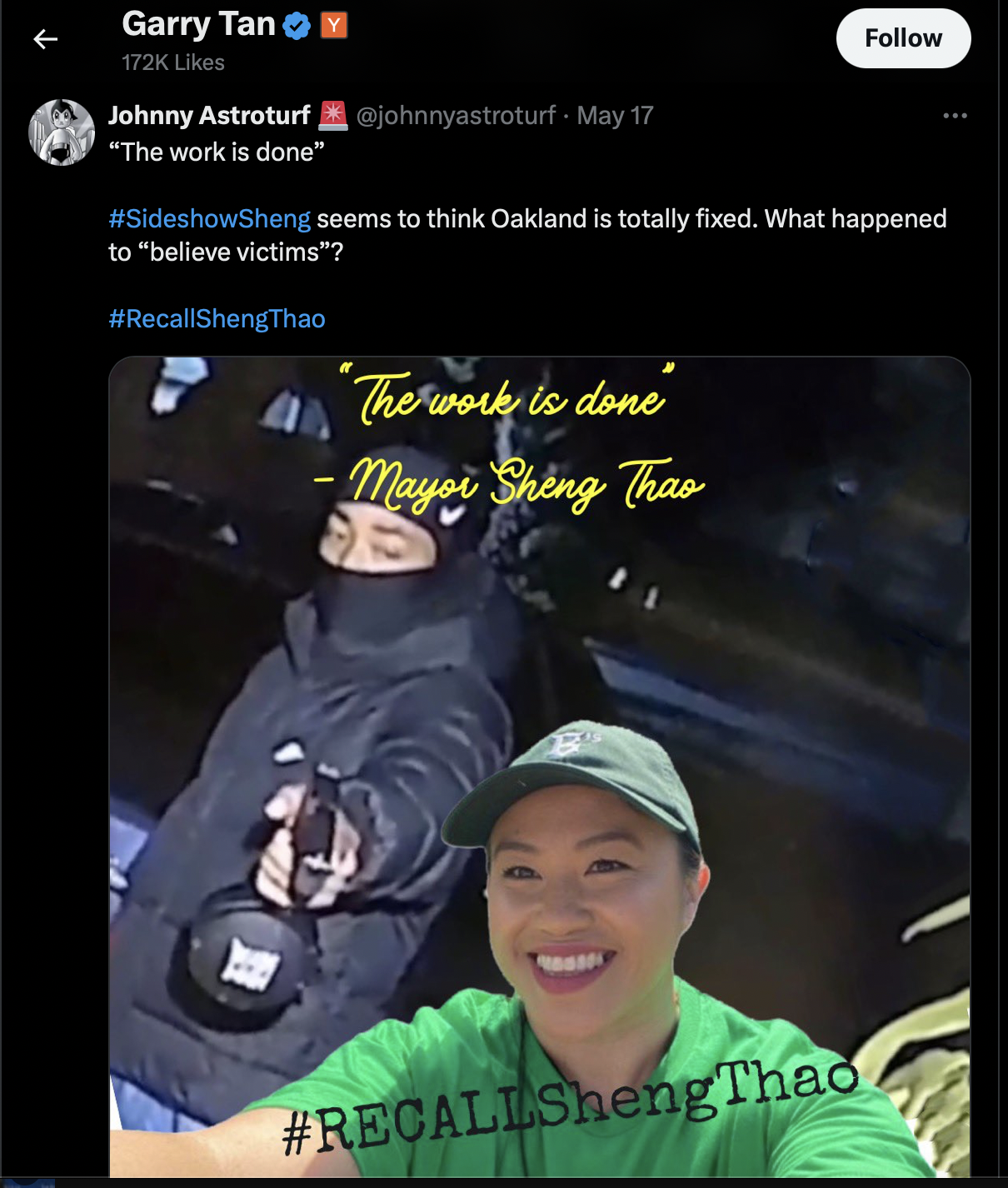
Imagine being the CEO of a world-famous startup accelerator and yet having the time to engage a menacing tweet from an anonymous troll. Worse, imagine thinking it’s fine to evoke the idea of pointing a gun at anyone, much less an elected official.
It’s the kind of mentality that might lead a person to tweet “die slow motherfuckers” at seven members of the San Francisco Board of Supervisors, as Tan drunkenly did in January (after having previously promised to “wipe out” the same officials).
After his “die slow” post backfired, Tan apologized, claimed he was joking, and temporarily halted his aggressive tweets. But he seems to be returning to his old antics.
What’s going on here?
Small Man Syndrome?
Analysis: At first glance, this seems like a case of Small Man Syndrome, also known as Short Man Syndrome.
In photographs, the diminutive Tan often seems a full head shorter than everyone else. And let’s face it: He is nobody’s idea of tough. He’s clearly more comfortable barking at a computer screen than scrapping in the streets.
That’s why Small Man Syndrome seems like a rational explanation. The term describes a pathology in which a small man overcompensates for feelings of inadequacy by projecting excessive aggression.
It may seem uncouth to criticize Tan’s physical appearance, but keep in mind that I’m short, too. Believe me, I know a thing or two about being small in a tall world. Unlike Garry, however, I have an intimate understanding of violence. Cartels and gangs proliferate in Tulare County, where I grew up. Violence isn’t something I know only from movies or video games. It was a grim reality of my youth.
So when I see a soft guy like Tan trying to mimic a gangster, I find it both ignorant and sad. Violence is nothing to glorify or provoke. There are plenty of ways for educated, middle-aged professionals to release anger and violence in a healthy manner (I recommend boxing).
Tan’s aggro edgelord cosplay could be a subconscious cry for help from someone with a stunted self-image. But here's a more disturbing possibility: What if he’s actually trying to normalize an atmosphere of violence in Bay Area politics?
Threats and consequences
After Tan’s January tweet tantrum, public officials received threats in the mail. So Tan knows that online threats can have real-life consequences. Some of his targets even filed police reports against him. But he clearly failed to learn anything from the experience.
Unfortunately, threats have become increasingly common in American politics, stoked by Donald Trump’s public calls for violence as well as his failed effort to overthrow democracy on January 6, 2021.
“From City Hall to Congress, public officials increasingly describe threats and harassment as a routine part of their jobs,” reported the New York Times in a story headlined “‘We’ll See You At Your House’: How Fear and Menace are Transforming Politics.” “Often masked by online anonymity and propelled by extreme political views, the barrage of menace has changed how public officials do their work, terrified their families and driven some from public life altogether.”
“By almost all measures, the evidence of the trend is striking. Last year, more than 450 federal judges were targeted with threats, a roughly 150 percent increase from 2019, according to the United States Marshals Service,” the Times reported. “The U.S. Capitol Police investigated more than 8,000 threats to members of Congress last year, up more than 50 percent from 2018. The agency recently added three full-time prosecutors to handle the volume.”
SF Bay Area: History of Violence
Of course, the San Francisco Bay Area's history of political violence long precedes Trump. Here's a quick rundown of recent history (this isn't an exhaustive list):
In 1973, a terrorist group gunned down Marcus Foster, the superintendent of the Oakland Unified School District. In 1976, a different terrorist group attempted to assassinate then-Supervisor Dianne Feinstein by planting a bomb outside of her home (it failed to explode).
In 1978, Supervisor Dan White murdered Mayor George Moscone and Supervisor Harvey Milk at San Francisco City Hall. Days earlier, politically-influential San Francisco cult leader Jim Jones murdered 900 people – including Rep. Leo Ryan – in the jungles of Guyana.
In 2002, East Bay Express reporter Chris Thompson went into hiding after writing critical stories about a politically influential Oakland cult, the Your Black Muslim Bakery, which then began stalking him. In 2007, the same cult assassinated Oakland Post editor Chauncey Bailey in downtown Oakland.
In 2020, two members of the right-wing anti-government "Boogaloo" movement murdered David Patrick Underwood, a federal officer, outside of the Ronald V. Dellums Federal Building in downtown Oakland.
I knew Feinstein, Thompson and Bailey, so these aren’t just historical anecdotes. Through their experiences, I saw firsthand how Bay Area politics can be dangerous and, sometimes, deadly.
That's why it’s shocking to see Tan repeatedly evoke the specter of violence. Does he not know this bloody history? Or does he simply not care?
Garry Tan: 'Twitter menace'
Tan’s supporters minimize his actions by saying it's all a joke.
They mock the suggestion that he is sending a message by promoting the violent tweet. But it’s hard to imagine his fanboys laughing if the gun were pointed in his direction. And if a progressive leader liked a violence-themed post targeting Tan, the hysterical screeching would break Twitter.
In fact, Tan has repeatedly accused left-leaning groups of making threats and has called for certain Twitter accounts to be banned. Yet he appears to embrace similar tactics himself, and he’s not alone.
Lately, Tan has publicly aligned himself with Seneca Scott, a strident activist who has run several failed campaigns for public office in Oakland. Scott, the self-styled leader of the campaign to recall Oakland’s mayor, has a history of making anti-LGBTQ and anti-trans statements. He has expressed support for imposing "soft martial law" in Oakland and has posted menacing photos of himself masked and displaying guns with high-capacity magazines. In 2021, he was arrested for carrying a concealed weapon and brandishing a gun.
On February 28, a group of Oakland leaders held a press conference where, holding photos of Scott and his weapons, they raised the alarm about what they called Scott’s threatening behavior.
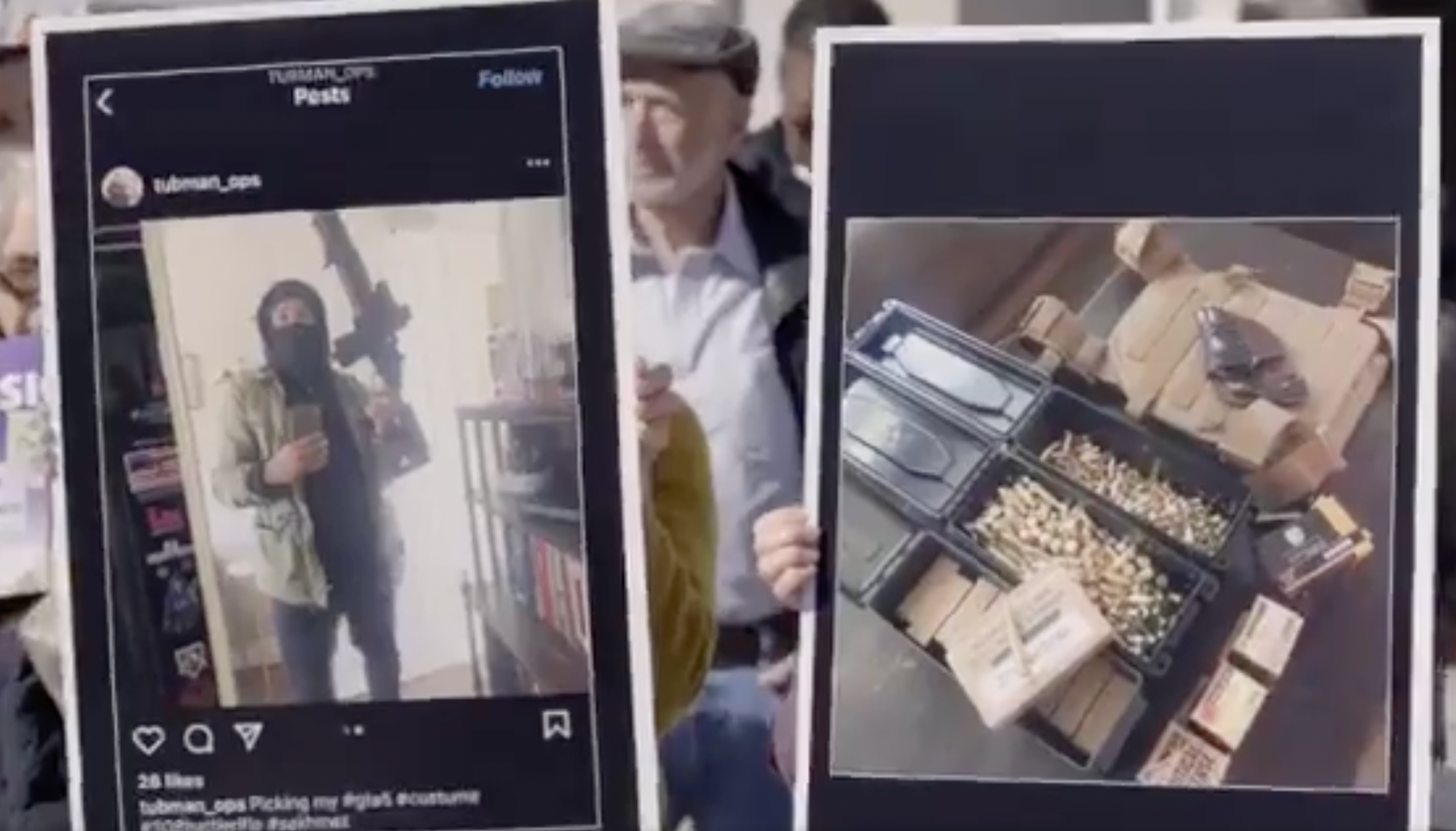
“I am here as an attorney to point out the role that Seneca Scott has been playing in this campaign and the violence he has perpetrated against a number of people,” said Walter Riley, a respected local civil rights lawyer.
“He appears to me – to us – as unhinged and, potentially, dangerously violent,” said Cat Brooks, a police reform activist who said she has been a frequent target of Scott’s attacks. “His Instagram boasts about his high-capacity magazines that can hold up to 50 bullets at a time … in this age of mass shooters, this is something we cannot afford to take lightly and, as someone who is a regular target of his attacks and violence, I do not take lightly.”
Tan, who regularly boosts Scott, sees things differently.
"True leadership," wrote Tan to his X-Twitter followers last month. "If you want Oakland to be great then you will follow and support Seneca."
The Twist: It was Scott who had first liked the photo of the masked man pointing a gun at Oakland’s mayor. After I called it out as a clear endorsement of violence, Tan added his own like to the sinister image.
Racking Chekov's gun
Final Thought for the Day: Garry Tan has positioned himself as a Bay Area political boss, but he appears to be following the lead of figures like Seneca Scott, whose toxic tactics are a recipe for disaster. Such behavior has no place in a democracy, where political differences are settled via elections. But Tan likes to play with fire.
The situation brings to mind a concept from Drama class: Chekov's Gun. This is the "principle in drama, literature, and other narrative forms asserting that every element introduced in a story should be necessary to the plot."
"One must never place a loaded rifle on the stage if it isn't going to go off," the celebrated playwright Anton Chekov reportedly said. "It's wrong to make promises you don't mean to keep."
Tan, a self-described "Twitter menace," has made a point of injecting violent language and imagery into our political discourse.
Are such antics simply a dramatic device – an edgelord's deranged idea of comedy?
Or is the gun going to go off at some point?
Relevant Quote:
"Honestly kind of sick to watch a tech company build a product for the underserved niche of edgelords who have public personas." – Atlantic staff writer Charlie Warzel reacting to news that X (Twitter) will now begin hiding likes from public view.
